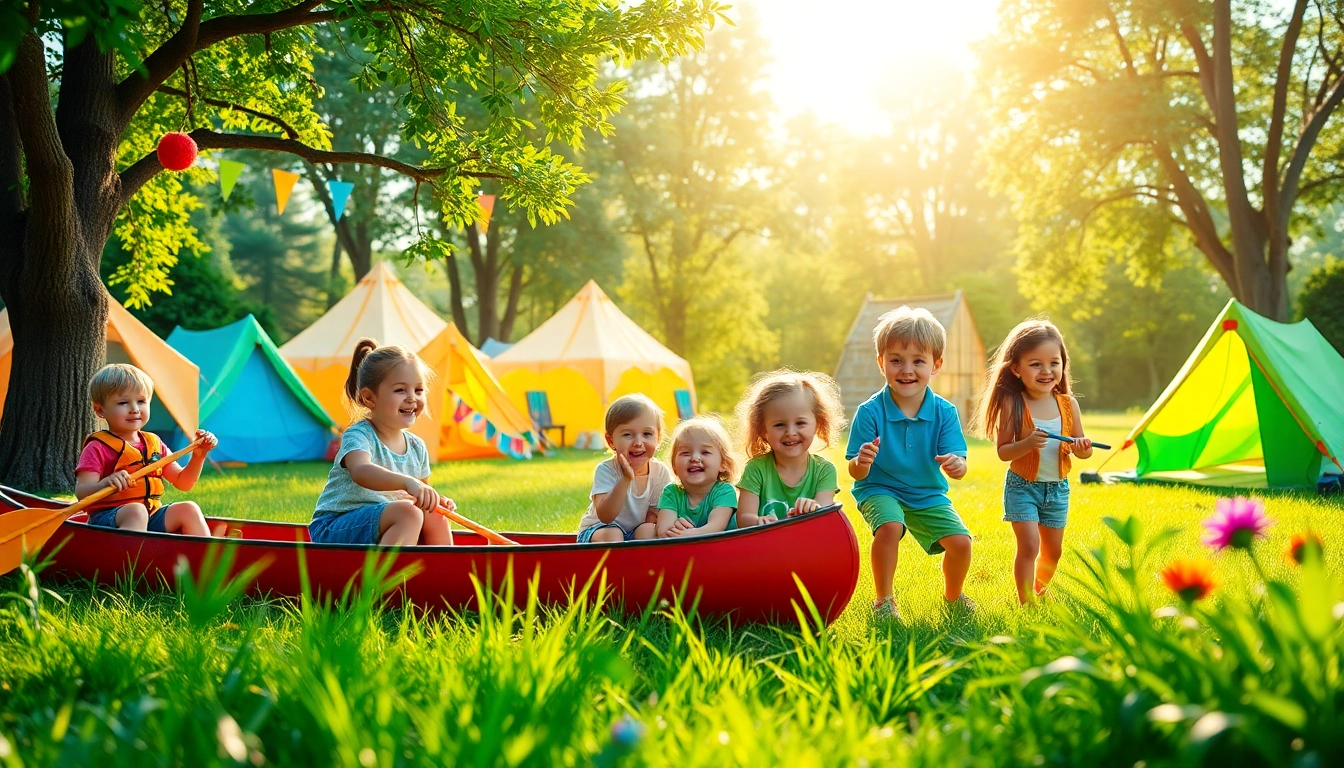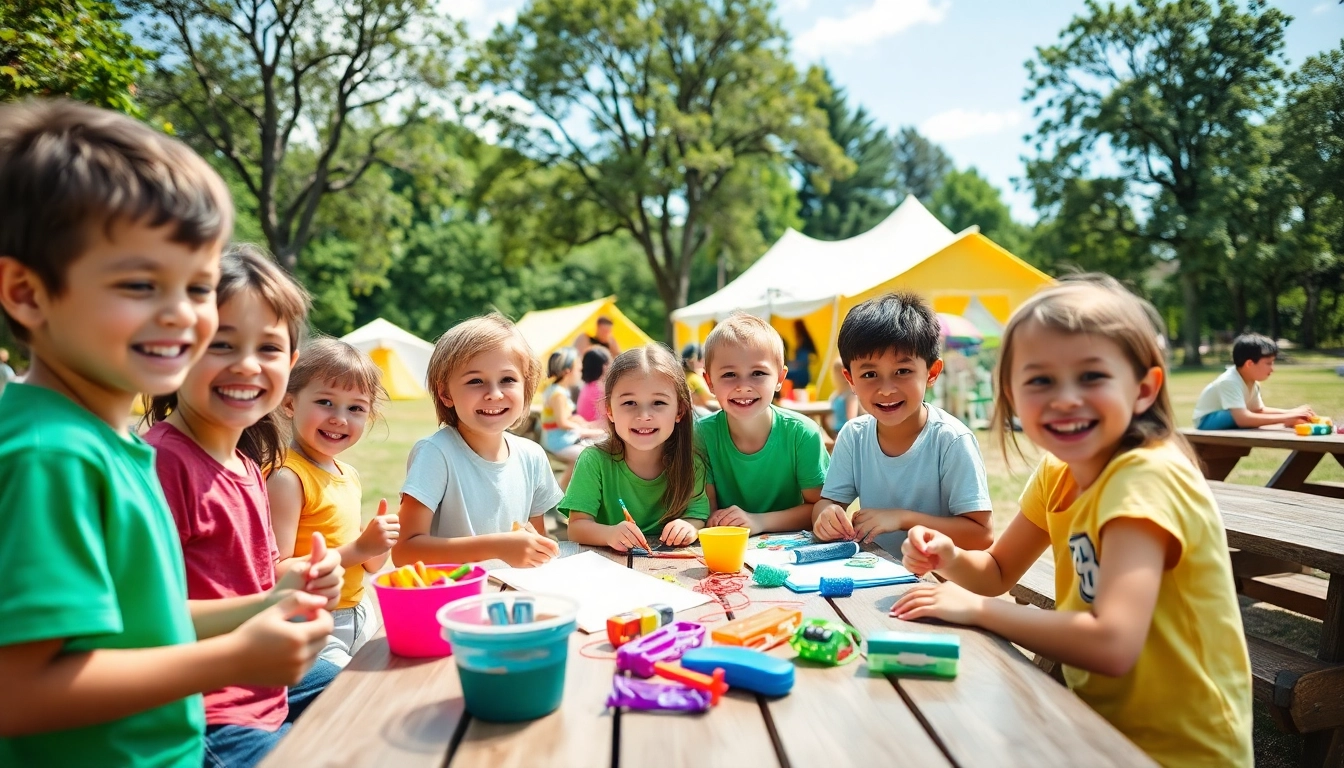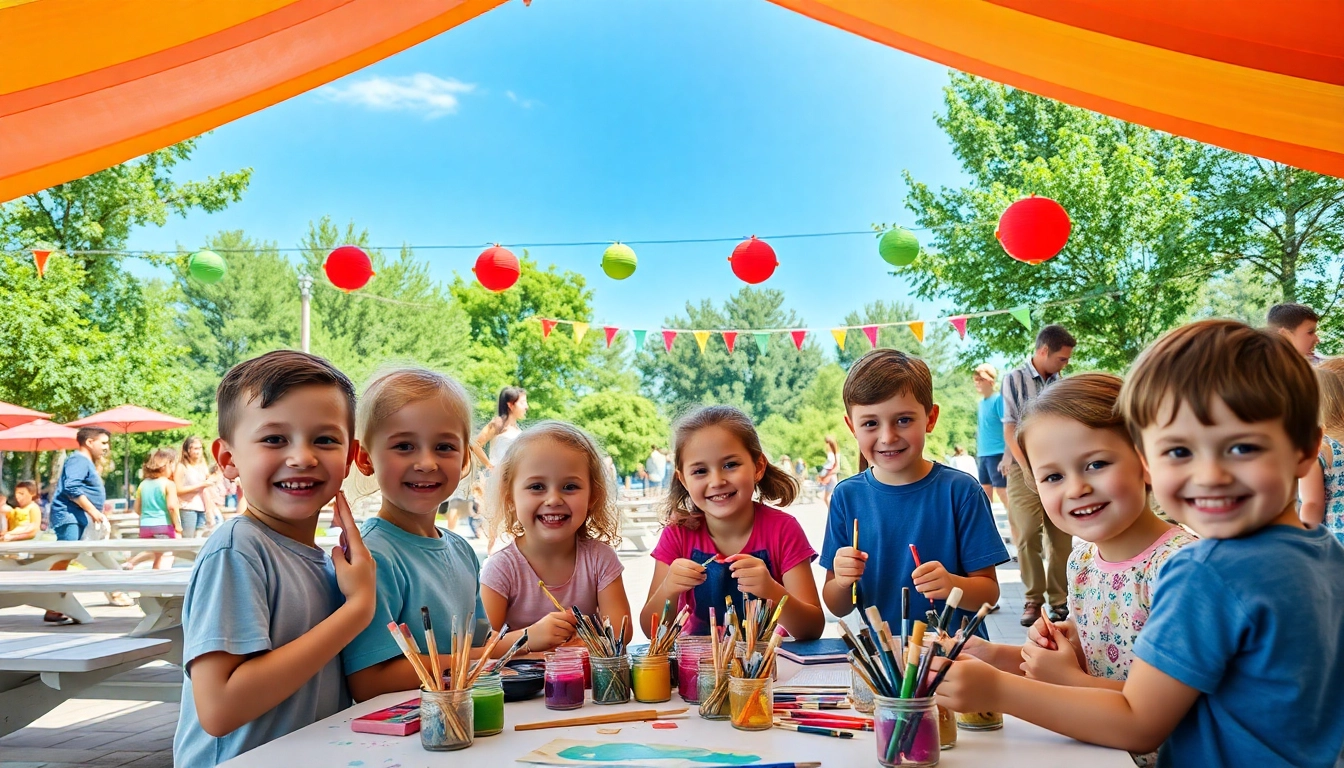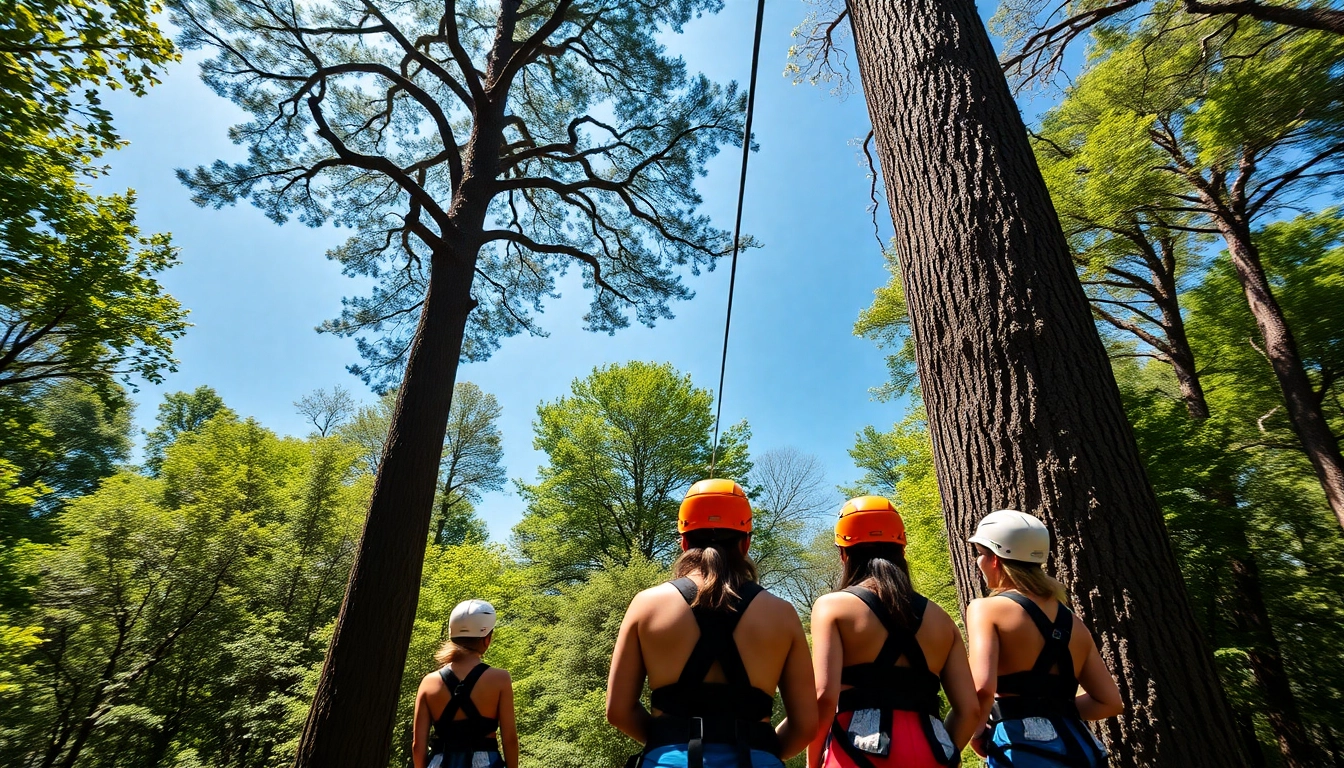Understanding the Benefits of Holiday Camps
For many families, the long summer break can pose a challenge. While it offers a delightful reprieve from the rigorous school routine, parents frequently wonder how to keep their children engaged, active, and learning during these months. This is where holiday camps come into play. Holiday camps provide a structured environment where children can enjoy a variety of activities while developing essential life skills. Let’s delve into the myriad benefits these camps offer.
Why Choose Holiday Camps for Your Child?
Holiday camps provide an excellent opportunity for children to step out of their comfort zones. In a world increasingly dominated by screens, holiday camps encourage kids to engage in real-world experiences. They promote not only physical activity but also social interaction. Children are able to meet new friends and develop teamwork skills, all in a safe, supervised environment.
Moreover, these programs cater to various interests, enabling children to explore their passions across different areas such as sports, arts, and nature. This exposure helps them to discover new hobbies that they may pursue even further, nurturing their creativity and enthusiasm for learning.
Key Skills Developed at Holiday Camps
Participation in holiday camps equips children with numerous skills:
- Teamwork: Many activities are group-oriented, promoting collaboration and collective goal-setting.
- Leadership: Kids often find themselves in leadership roles during activities, fostering a sense of responsibility.
- Independence: Being away from home, even for short durations, cultivates self-reliance.
- Problem-solving: Activities often require critical thinking and creativity, essential skills for future success.
- Communication: Interacting with peers and instructors enhances verbal and non-verbal communication skills.
The Role of Outdoor Activities in Holiday Camps
Nature plays a vital role in the context of holiday camps. Many of these programs incorporate outdoor activities such as hiking, swimming, and playing sports. These not only teach children about the environment but also contribute significantly to their physical health. Outdoor engagement has been shown to reduce stress and anxiety, allowing children to reconnect with nature and themselves.
The immersive experiences in nature provide invaluable lessons in teamwork, resilience, and patience. Beyond physical activity, they also promote a healthy lifestyle, enhancing children’s appreciation for the great outdoors.
Types of Holiday Camps Available
The variety in holiday camps is impressive. No matter your child’s interests, there’s likely a camp that fits their needs. Here’s a closer look at some popular types of holiday camps:
Sports-Focused Holiday Camps
Sports-focused holiday camps provide children with opportunities to either strengthen existing skills or learn new ones in various sports disciplines. From soccer and gymnastics to swimming and basketball, these camps cater to every young athlete’s desire to improve or simply have fun.
These camps typically incorporate exercises and training sessions designed by experienced coaches, helping kids enhance their techniques in a fun rather than competitive environment. They not only promote physical health but also instill values like respect, discipline, and hard work.
Arts and Crafts Holiday Camps
For creatively inclined kids, arts and crafts holiday camps provide unprecedented opportunities. These camps nurture artistic expression through various mediums such as painting, pottery, and sculpture. They offer children a platform to explore their creativity while also refining their fine motor skills.
Participating in arts and crafts fosters a sense of accomplishment as kids can proudly display or take home their creations. Furthermore, these activities allow for emotional expression, giving children an outlet for their feelings.
Adventure and Nature Holiday Camps
Adventure and nature camps take children into the great outdoors, often featuring thrilling activities like rock climbing, zip-lining, or wilderness survival skills. These camps emphasize not only fun but also a profound respect for nature.
Children are taught essential survival skills and responsible outdoor behavior, ensuring they become capable outdoor enthusiasts. These experiences promote courage and resilience, important attributes that benefit kids in multiple areas of life.
Choosing the Right Holiday Camps for Your Child
Selecting the ideal holiday camp for your child may seem daunting. However, with a strategic approach, you can identify a camp that suits your child’s interests and needs.
Factors to Consider When Selecting Holiday Camps
Begin by assessing what your child is most interested in—be it sports, arts, or nature. Understanding their passions will guide your search for suitable camps. It’s also essential to consider the age range of the camp; not all camps cater to every age group.
Additionally, review the camp’s schedule and location. It should ideally fit within your family’s calendar and be conveniently located to ease drop-off and pick-up. Other factors may include the camp’s reputation and the qualifications of its staff.
How to Assess Camp Quality and Safety
Safety should be at the forefront of your decision-making process. Look for camps that adhere to industry safety standards and are accredited by recognized organizations. It’s advisable to research staff qualifications, staff-to-camper ratios, and safety protocols, including emergency readiness.
Many camps also provide testimonials and reviews from previous attendees. Engage with other parents to gather their experiences, as word-of-mouth can provide invaluable insights into the camp’s quality and safety.
Understanding Costs and What’s Included in Holiday Camps
Exercise careful budgeting when selecting holiday camps. Camp fees can vary significantly; thus, it’s crucial to understand what’s included in the price. Some camps might cover meals, supplies, and transportation while others may charge additional fees for certain activities.
Don’t shy away from asking camp directors detailed questions regarding their fee structure. Understanding all costs will prevent unexpected expenses later on.
Preparing for a Successful Holiday Camps Experience
Preparation is key to ensuring a wonderful experience for both you and your child. By managing expectations and packing appropriately, you can help your child feel excited rather than anxious about their upcoming camp adventure.
What to Pack for Holiday Camps
When it comes to packing for holiday camps, it’s crucial to adhere to the camp’s packing list while also including a few personal items. Essentials typically include clothing appropriate for various activities, sunscreen, a water bottle, and any necessary medications.
Additionally, packing comfortable shoes, a hat, and a lightweight rain jacket can ensure your child is prepared for any weather conditions. Including a book or a small toy can provide comfort during relaxation times.
How to Prepare Your Child Mentally
Prepare your child mentally for their holiday camp experience by discussing what they can expect. Familiarize them with the camp schedule and encourage them to ask questions. This can transform apprehension into excitement.
Reassuring your child that it’s perfectly normal to feel nervous, while also emphasizing the fun aspects of camp can dramatically enhance their confidence. Creating goals, such as making a new friend or trying a new activity, can also empower your child.
Setting Expectations for Holiday Camps
Setting realistic expectations is vital. Discuss with your child that while they will have periods of joy, they might also face challenges. Emphasizing that it’s okay to feel homesick or anxious can help them cope with these emotions should they arise.
Furthermore, let your child know that trying new things is part of the adventure; encourage them to embrace every experience, whether it’s a thrilling zip-line ride or crafting a masterpiece in art class.
Making the Most of Holiday Camps
Once your child is enrolled in their chosen holiday camp, your role doesn’t end. Encouraging them to fully engage in the experience and fostering a positive attitude will enhance their enjoyment and learning.
Encouraging Independence and New Friendships
Encourage your child to embark on their camp experience with an open mind. Allow them to make choices about activities they want to participate in, nurturing their independence. This empowerment lays the groundwork for self-discovery and builds confidence.
Friendship formation is crucial; encourage your child to communicate and interact with others. Remind them that every child at camp is in the same boat and is likely looking for new friends.
Post-Camp Activities to Reinforce Learning
After the camp, it’s beneficial to engage your child in conversations about their experiences. Ask them what they learned, what they enjoyed the most, and what challenges they faced. This helps reinforce the skills acquired during camp and allows them to reflect on their growth.
Consider organizing follow-up activities based on their camp experience. For example, if they attended an arts camp, engage them in a home project that allows them to use the skills they developed at camp.
Sharing Experiences from Holiday Camps
Encourage your child to share their camp stories with family and friends. This reinforces communication skills and allows them to practice storytelling. You can organize a post-camp presentation for them to showcase what they learned and the friends they made, or they might want to create a scrapbook filled with camp memories.
Sharing experiences fosters a sense of belonging and accomplishment. It can be a significant confidence booster for children to express themselves and show others what they have achieved.



